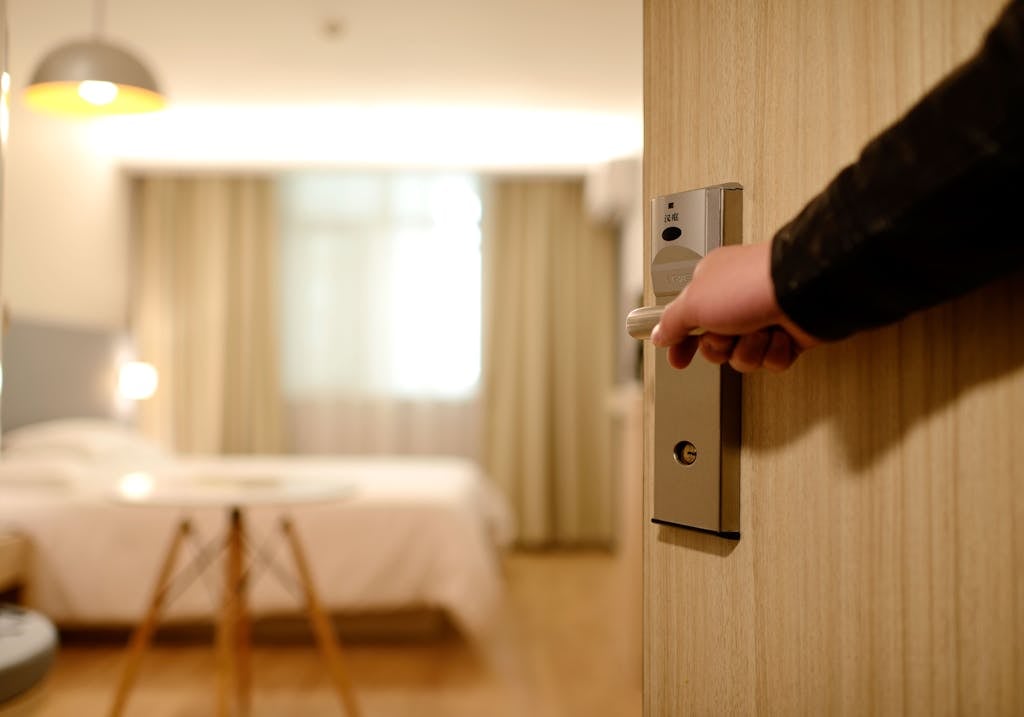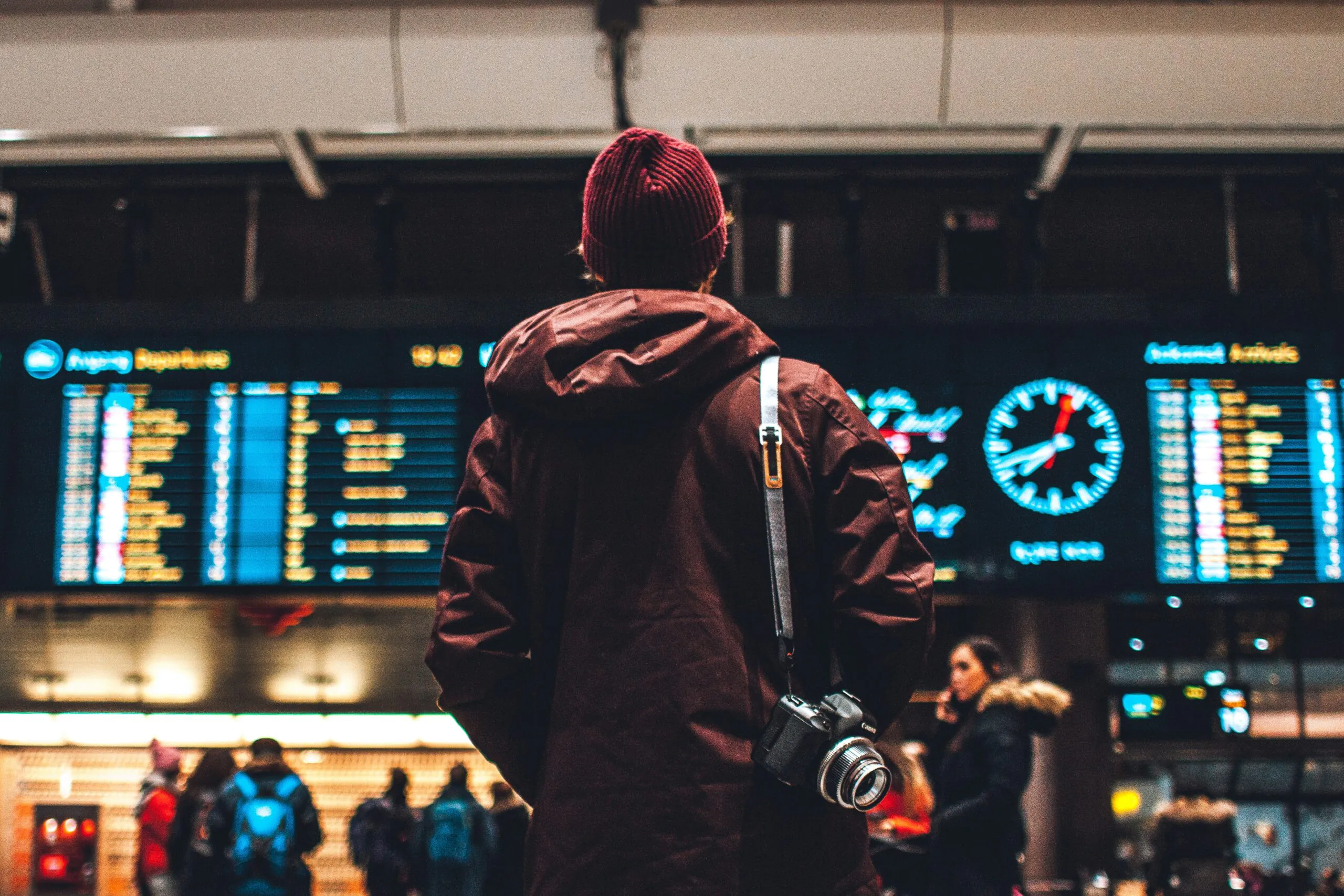Best Accommodation Options for Digital Nomads
Hostels, Airbnbs, and Coliving Spaces
Where you lay your head at night profoundly shapes your remote work journey. The space you choose becomes far more than just a place to sleep—it transforms into your office, your sanctuary, and often your social hub. Finding that perfect balance between affordability, comfort, and community can feel like navigating a complex equation with too many variables.
Whether you’re contemplating the social buzz of a hostel, the homey comforts of an Airbnb, or the purpose-built environments of coliving spaces, each option carries its own unique flavor and set of tradeoffs. Your choice ultimately depends on what matters most during your current chapter: building connections with fellow travelers, creating a distraction-free workspace, or stretching your travel budget as far as possible.
In this guide, we’ll walk through the landscape of nomad-friendly accommodations, weighing their strengths and limitations against practical criteria. We’ll also explore how different destinations might influence your decision, with real-world examples from popular remote work hubs around the globe.
Why Your Accommodation Choice Makes All the Difference
The Workspace Factor
For location-independent professionals, your temporary home doubles as your office. The environment you select directly influences your focus, creativity, and output. Beyond the obvious need for reliable internet, factors like ergonomics, noise levels, natural light, and even air quality can dramatically impact your workday experience.
Many remote workers discover this truth the hard way—attempting to meet deadlines while perched on an uncomfortable chair or battling the cacophony of a bustling hostel common room. The right living situation creates a foundation for professional success, while the wrong one can trigger a cascade of productivity challenges.
Financial Sustainability
When you’re continuously on the move, accommodation typically consumes the largest portion of your budget. Making informed choices about where to stay doesn’t just affect your comfort—it determines how long you can sustain your travel lifestyle.
The difference between spending $800 or $1,500 monthly on housing can mean extending your stay by weeks or even months. Finding that sweet spot where value meets necessity requires understanding both the local market and your own non-negotiables.
Your Social Ecosystem
Perhaps the most underappreciated aspect of accommodation choice is how profoundly it shapes your social experience. The walls around you either facilitate connections or create isolation, depending on their nature and your needs.
Some travelers thrive in communal environments where spontaneous conversations over breakfast lead to lifelong friendships or business partnerships. Others find their creativity and well-being depends on periods of solitude and personal space. Neither approach is inh
Comparing the Best Accommodation Options for Digital Nomads
To help you navigate the decision-making process, here’s a comparison of hostels, Airbnbs, and coliving spaces across various criteria: cost, community, privacy, amenities, and flexibility.
| Criteria | Hostels | Airbnbs | Coliving Spaces |
|---|---|---|---|
| Cost | Budget-friendly, dorm rooms | Varies depending on location | Mid-range, sometimes expensive |
| Community | High social interaction | Limited, depending on host | Strong sense of community |
| Privacy | Limited, shared spaces | Full privacy in entire space | Mix of private rooms and shared areas |
| Amenities | Basic, shared kitchens, common areas | Varies, often includes full kitchen | Designed for remote work, includes offices or coworking spaces |
| Flexibility | Short-term, day-to-day availability | Highly flexible, but prices may vary | Mid- to long-term stays, sometimes requires commitment |
Hostels: Affordable and Social
Pros
Hostels are a go-to option for travelers seeking budget-friendly accommodation. They typically offer dormitory-style rooms, shared bathrooms, and common areas where travelers can socialize. For digital nomads on a tight budget, hostels are often the most affordable choice, especially in more expensive cities like Paris or Tokyo.
One of the main attractions of staying in a hostel is the opportunity to meet like-minded travelers. The common areas provide a chance to socialize, network, and find new travel companions. Some hostels even host events, tours, or activities to bring guests together.
Cons
The downside to hostels, however, is the lack of privacy. Dorm-style living means you’ll be sharing a room with several other people, which can make it difficult to get work done or have personal time. While some hostels do offer private rooms, these can be quite expensive and may not provide the same value as Airbnbs or coliving spaces.
Additionally, internet quality can vary greatly. Some hostels offer excellent Wi-Fi, while others struggle with slow speeds or limited access, which can be problematic for digital nomads who rely on a stable connection.
Example: Barcelona
In a city like Barcelona, hostels are abundant, and many cater to the digital nomad crowd. Look for hostels like Sant Jordi Hostels which offer coworking spaces and reliable internet, blending affordability with a functional workspace.

Airbnbs: Privacy and Comfort
Pros
For those seeking more privacy and comfort, Airbnb is often the best accommodation option for digital nomads. Unlike hostels, Airbnb offers a wide range of accommodations, from shared spaces to entire homes. This flexibility allows you to choose a place that fits your needs—whether you want a quiet studio to focus on work or a large apartment for a longer stay.
One of the biggest advantages of Airbnbs is the availability of full amenities, such as a private kitchen, bathroom, and living space. This setup allows you to live more comfortably and maintain a regular routine, which is important for long-term stays. Airbnbs also give you the freedom to explore different neighborhoods, giving you a more authentic experience of the city.
Cons
The downside to Airbnb is the cost. While it’s often more affordable than hotels, staying in an Airbnb for an extended period can become pricey, especially in popular destinations like New York or London. Additionally, depending on the host, some Airbnbs may lack the social aspect or community feel that you would get in a hostel or coliving space.
Example: Lisbon
In Lisbon, Airbnbs offer a variety of options, from cozy studios in Alfama to modern apartments in Chiado. If you’re staying for a longer period, many Airbnb hosts offer discounts for weekly or monthly stays, making it a more viable option for digital nomads who want privacy without sacrificing location.
Coliving Spaces: A Blend of Work and Community
Pros
Coliving spaces are designed specifically for digital nomads and remote workers, offering a blend of community living and professional workspace. These spaces typically include private bedrooms and shared common areas, such as kitchens, lounges, and coworking spaces. Coliving spaces often attract a community of like-minded people, which can be a huge benefit for digital nomads seeking networking opportunities or collaboration.
In addition to a built-in community, coliving spaces are equipped with all the essentials for remote work—fast internet, dedicated workspaces, and sometimes even private offices. Some coliving spaces also host events, workshops, or skill-sharing sessions, which can add value to your stay by offering professional development opportunities.
Cons
The primary disadvantage of coliving spaces is the cost. These spaces can be quite expensive, especially in major cities or tourist hotspots. Additionally, some coliving spaces require long-term commitments, making them less flexible than hostels or Airbnbs if you’re planning to stay for a shorter period.
Example: Bali
Bali has become a digital nomad hotspot, and coliving spaces like Outpost Bali offer an ideal mix of community, coworking facilities, and comfortable living arrangements. Many coliving spaces in Bali are located near coworking hubs, making it easy to network and collaborate with other professionals while enjoying the island’s relaxed atmosphere.
What to Consider When Choosing Accommodation
Internet Quality
As a digital nomad, reliable internet is non-negotiable. Always check reviews or directly contact the accommodation to ensure that the Wi-Fi meets your needs. Websites like Nomad List provide community-driven insights into internet speeds and quality in various accommodations around the world.
Location
Consider the location of your accommodation in relation to your lifestyle needs. Do you want to be close to coworking spaces, cafés, or local attractions? Or is a quiet residential area better suited to your work and relaxation habits? For example, in Mexico City, staying in neighborhoods like Roma or Condesa offers easy access to coworking spaces and social activities, while being quieter than the bustling city center.
Cost and Budget
Evaluate your accommodation options based on your budget. Hostels are generally the most affordable, but if you’re staying in one place for several weeks or months, an Airbnb with a monthly discount or a coliving space with inclusive amenities might offer better long-term value. Be sure to factor in additional costs, such as commuting, meals, or using nearby coworking spaces.
Making the Most of Your Stay
Regardless of whether you choose a hostel, Airbnb, or coliving space, take full advantage of what each accommodation has to offer. If you’re staying in a hostel, get involved in community activities or local tours to meet fellow travelers. In an Airbnb, make use of the kitchen to cook local dishes and immerse yourself in the culture of the area. In coliving spaces, network with other nomads and participate in events to learn new skills or collaborate on projects.
Your Ideal Accommodation Awaits
Choosing the best accommodation options for digital nomads depends on your specific needs, priorities, and lifestyle. Hostels are ideal for budget-conscious travelers looking to socialize, Airbnbs offer privacy and comfort, and coliving spaces provide a community-focused environment designed for remote work. By weighing the pros and cons of each option and considering factors like location, cost, and internet quality, you can find the perfect place to live, work, and explore during your nomadic journey.
Related Post: The Rise of Coliving Spaces: A New Trend for Digital Nomads?













